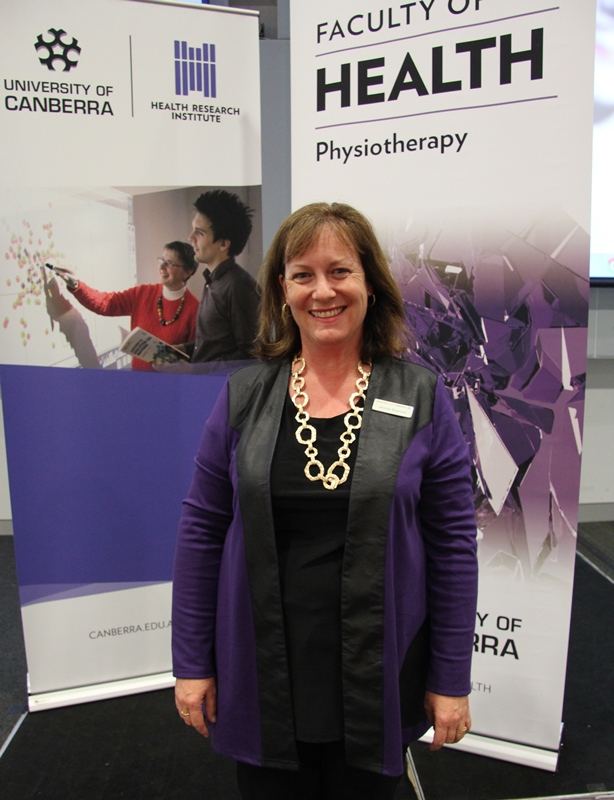Marcus Butler
7 June 2016: More than 40,000 Australians will undergo a knee replacement this year, but a few simple steps could improve the outcomes of this invasive and costly operation, according to a University of Canberra academic.
Head of physiotherapy Professor Jennie Scarvell drew on her experience as a researcher and clinician to deliver the inaugural Health Research Institute public lecture Knees in motion: medical imaging and physiotherapy illuminates our understanding of osteoarthritis.
“Knee osteoarthritis is a truly debilitating disease, it impacts so many aspects of a person’s life,” Professor Scarvell said.
She was inspired to begin researching knee osteoarthritis while working as a clinical physiotherapist, and overhearing a patient being told, ‘you have osteoarthritis in that knee, and there is nothing you can do about it.’
“I thought that is wrong and I set out to prove it.”
Professor Scarvell advocates maintaining a healthy weight and getting exercise as the two primary preventative measures.
“I often hear people say ‘my knees are playing up so I’m keeping off my feet’, but moderate exercise in addition to maintaining a healthy weight can actually help, as movement keeps the cartilage in our joints healthy.”
Her current research combines fluoroscopy (an x-ray ‘movie’) and CT scans to understand the way people move their knees and the relationship with degenerative changes like osteoarthritis.
“People playing sports which have a lot of stop-start movement, like football, netball and tennis tend to suffer knee injuries, and about 60 per cent of those injuries will lead to osteoarthritis in their knees. My research is aimed at understanding what the other 40 per cent is doing that prevents this,” Professor Scarvell said.
“By comparing how healthy people move their knees compared with those with osteoarthritis, we hope to see differences that will allow us to better design everything from physiotherapy interventions to knee replacement prosthetics,” she said.
Currently, knee replacements have a life-span of between 15-20 years and Professor Scarvell said if someone has a replacement at age 55 they’ll likely need another one at 70 years old.
“If we can help people avoid needing a knee replacement even for an extra few years it will be better for them in the long-run, because having that operation at 70 is starting to get very risky.”



